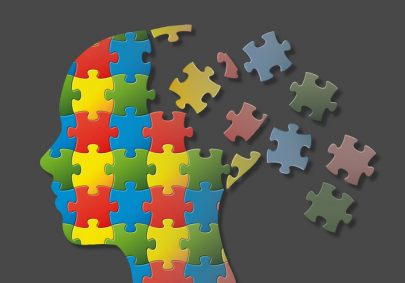
This week was Mental Health Awareness Week, and bringing it to a close on the Education Executive website is Marcus Pibworth. The following article first appeared on Ministry of Change. In in Marcus shares some points on mental health that he has been thinking and discussing with people over the past few weeks
CREDIT: This article was first seen on Ministry of Change, and is authored by Marcus Pibworth
For a number of years I’ve struggled with anxiety and mild depression. Sometimes this is just a small, nagging feeling at the back of my mind. Sometimes it is a full blown, stay-in-doors, debilitating mania.
Although there is much more discussion around mental wellbeing these days, there is still a stigma surrounding these issues. I feel it is much more acceptable to tell someone you are going to the gym, than that you are going to the therapist.
Physical fitness is an ingrained and normalised part of society. Mental fitness is not.
Until recently, I would have said I was unavailable on Wednesday lunchtime, and be quite vague about why. But now I am much more confident in telling people I’m at my Cognitive Behavioural Therapy session. I realised that every time I offered a vague response, I was complicit in making mental wellness a taboo, and perhaps denying someone the chance to take the step themselves.
I used to see having these mental health issues as a weakness and try to work out how to ‘cure’ myself. Now, I try and take a more welcoming approach. These thoughts and feelings are a part of me. They will most likely always be a part of me. The important thing is to be aware of these thoughts and feelings.
When I face them, and let them have their air time, they begin to lose their hold a little. It’s almost as if by giving them some attention, they become satisfied and will move on quicker, and stop by for a shorter time the next time they get restless. By ignoring and repressing them they only grow.
Anxiety as a Strength
Rather than seeing anxiety as a weakness, over the last year or so I’ve been much more able to start seeing it as a strength. It’s something that has made me who I am. By facing up to these feelings I was forced to take the hardest journey of all. To go inside of myself and to face up to my fears.
As one friend put it anxiety is ‘a side effect of awesomeness’.
It has helped me to question my assumptions and the reality I have built up around myself. I’ve realised by confronting and getting comfortable with my vulnerabilities, I’ve been able to learn a lot about myself and my relationship with other people.
A Systemic Approach
It helped me to take a more systemic approach to how I live my life.
My mental health and physical health don’t exist in isolation from one another. The food I put into my body, the people I hang around with, the work I take on, the books I read, and the things I say or don’t say are all part of the complex system that makes up me.
Focusing on just one aspect of this system may help for a while, but ultimately an awareness of the whole system is the only thing that can create long term change. It is an iterative process of trial and error. Switching routines and doing regular experiments, to discover how I can thrive and be the best possible version of myself.
It’s also helped me to see how what goes on inside of me is very much interconnected with the environment and eco-system around me.
Social Reality
These words by Otto Scharmer sum it up pretty well:
‘Usually we perceive social reality around us as a thing, as something that is outside and separate from us. This blindspot means we do not see ourselves bringing forth social change in the first place, and with that we do not have an understanding of how our individual awareness and intention impact social reality around us’.
Being forced to look inside of myself, to get a better understanding of how my brain is wired, has helped me connect on a deeper level to what is going on around me and realise that small changes can be the seeds for wider change.
When you take the time to reflect and become aware that you have constructed your own reality through your experiences and assumptions, it becomes easier to see how this reality isn’t a fixed and concrete thing, as it can first appear. Reality, internal and external, is something that you can have a direct affect on. It is a transient and ever changing social construct, ripe for positive change.
Positive Impact
Many of the people I know that are creating the biggest positive impact on the world are people who have gone through pretty serious mental health struggles. Often the need to analyse ourselves is the first step to realising our path in the world.
If the world were made up of people who had no internal struggles, I’m sure we would be living in a much less interesting place.
By realising that our struggles and vulnerabilities are not our weaknesses but our superpowers, each and every one of us can create the change we want to see.
That can only happen if we drop our masks and talk to each other.
Don’t forget to follow us on Twitter, like us on Facebook, or connect with us on LinkedIn!

Be the first to comment